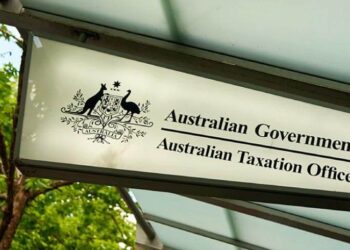In a recent Heffron article, Heffron managing director Meg Heffron a retirement phase pension is one of the greatest benefits of having long-term investments in super because it can mean a complete tax exemption on capital gains that have built up over many years.
However, Ms Heffron noted that its not necessarily essential to start the pension before selling the assets.
She gave an example of Craig, who turned 60 in 2020 and retired.
“At the time, he started a pension with all his super in his SMSF and so August 2022, his fund just has pension accounts (he’s the only member),” she explained.
His fund has owned an investment property for 15 years which it is about to sell. The property is worth a lot more than when the fund bought it, she noted.
Ms Heffron explained that Craig can sell this property without his fund paying any capital gains tax at all.
“That’s despite the fact that Craig knows most of the growth in the property’s value actually happened before he retired and started his pension. All that’s important is how the fund looks in the year the property is actually sold,” she stated.
A good rule of thumb for those approaching retirement, she said, can be to wait until the pension is started before selling investments in their SMSF if the fund is facing very large capital gains.
However, she warned that depending on the circumstances of the client, it can be more complicated than that.
“First of all, Craig’s situation was really simple. He converted all his super (which is all in his SMSF) into a pension and it happened several years ago. So in his case, all of his fund’s investment income (including all capital gains) are exempt from tax this year,” Ms Heffron explained.
However, if another client, Tony, had a very large balance and therefore wasn’t able to turn all of it into a pension due to the transfer balance cap, he would have an amount left in his accumulation account, she noted.
If he has a total super balance of $2 million, he would need to leave $300,000 out of his pension, based on the current $1.7 million general transfer balance cap.
“In this case, the tax for Tony’s SMSF is worked out slightly differently. In 2022/23, a percentage (rather than all) of his fund’s investment income is exempt from tax,” she explained.
“The percentage is likely to be around 85 per cent for Tony’s fund because his pension account represents around 85 per cent of his total fund. So if his SMSF sold an investment property in 2022/23, 85 per cent of the capital gain would be exempt from tax but the rest would be taxable.”
This example is still fairly straightforward, she said, but might be more complicated where the pension was started in January 2023 instead.
“Remember that only a percentage of the capital gain is exempt from tax. Unfortunately, the percentage has to be worked out over the whole year,” she explained.
“In this example, around 85 per cent of the fund was in a retirement phase pension for the second half of the year but it was 0 per cent for the first half of the year. So the percentage for Tony’s fund in 2022/23 will only be around 42 per cent. [This means] that only 42 per cent of the capital gains will be exempt from tax.”
“It’s because the percentage that’s being used is very low — dragged down by the fact that Tony only started his pension part way through the year.”
In this particular situation, Ms Heffron said Tony would be better to wait and sell the property early in the new financial year.
“For 2023/24, the percentage will be more like 85 per cent (as long as nothing else changes — like he stops his pension),” she stated.
An important tip, explained Ms Heffron, is that if a pension starts midway through the year, the percentage in that first year is often a lot lower than it will be in the future.
Ms Heffron said if Tony was to sell the property in August 2022 before starting his pension, this wouldn’t actually change the percentage, it would still be 42 per cent.
“42 per cent of all the investment income the fund has earned during the whole year is exempt from tax. Even income it earned before his pension started and even capital gains,” she said.
In the case of Craig, Ms Heffron said there is also potential solution due to the changes for calculating exempt current pension income for 2021/22 onwards.
“Normally Craig’s SMSF would work out its tax exemption using the method described earlier — all income (including capital gains) after his pension started is exempt from tax and everything beforehand is taxable. But from 2021/22 onwards, people like Craig are allowed to choose to be treated like Tony’s — and use the percentage method,” she noted.
“In this case, the percentage would be around 50 per cent (i.e., his fund was 0 per cent in pension accounts for the first half of the year and 100 per cent in the second half). This 50 per cent would apply to all investment income for the whole year, both before and after the pension started.”
Ms Heffron said this shows that its not always critical to wait until after pensions start to sell assets with large capital gains.
“The nuances can be complex — it’s definitely a time when good advice can save thousands in tax,” she stated.


